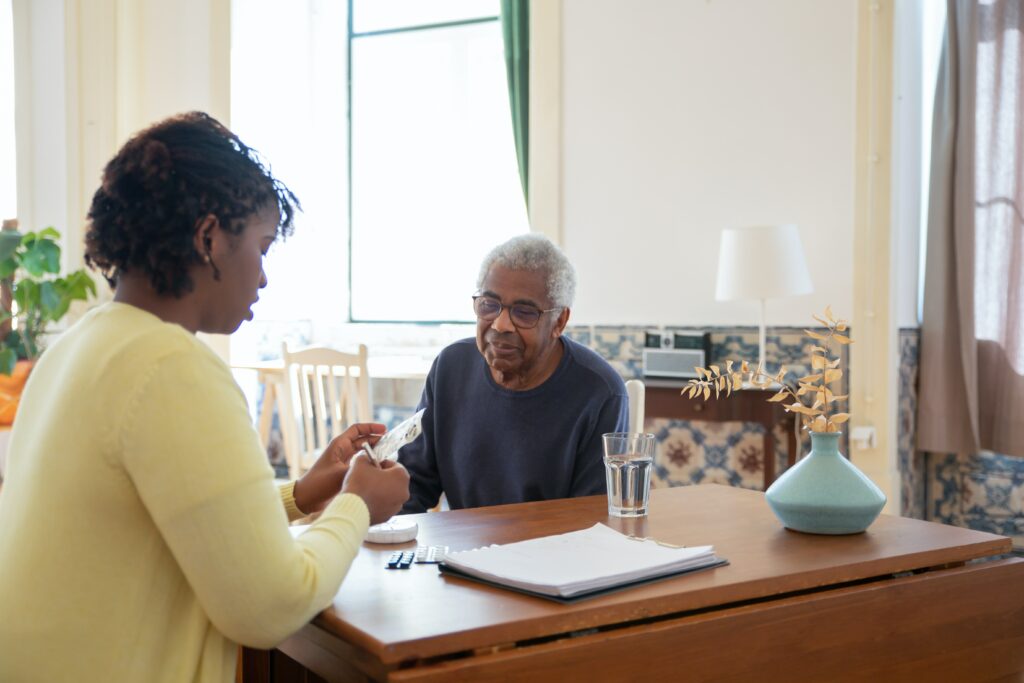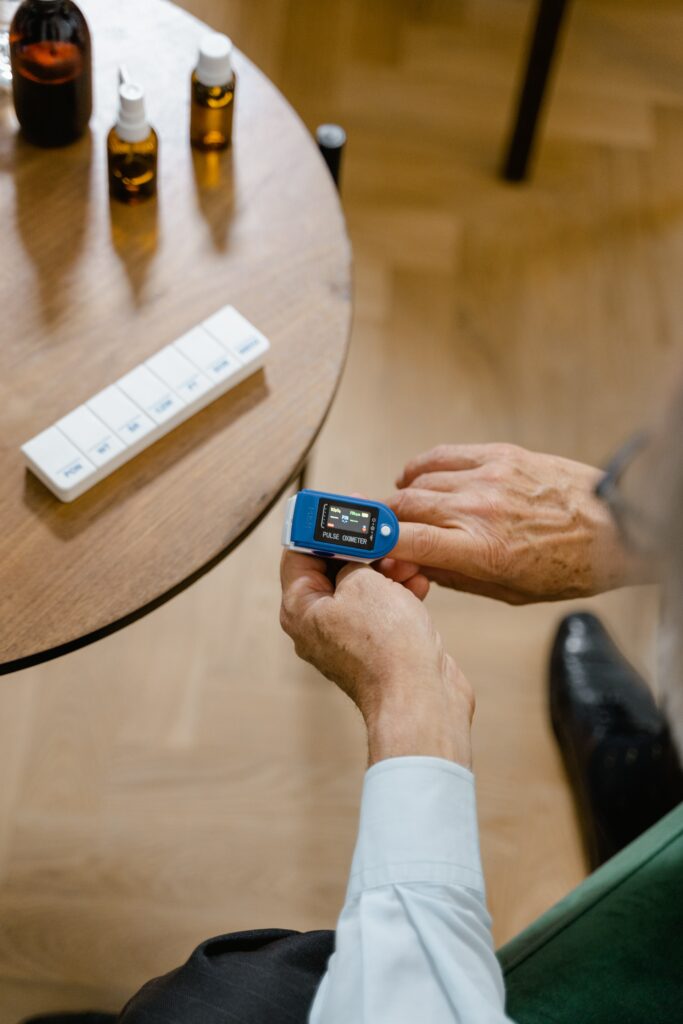Alzheimer’s is the boogy man of generations that have come before and will come after until a cure is found. The condition or disease itself is a form of dementia. About 44 Million people worldwide are diagnosed with Alzheimers or some form of dementia. This comes out to be one in four people on a global scale. In fact, out of these, 5.5 million live here in the United States. According to these statistics, Alzheimer’s disease is now the sixth-leading cause of death throughout the U.S., with higher statistics than breast cancer and prostate cancer combined. Many people dread hearing that they have been diagnosed with Alzheimer’s disease. In a world with wireless internet, cell phones, quantum computers and satellites that explore space, it is amazing that a disease like Alzheimer’s still exist, but it does. What should a person do now? Is there any hope? The answers to these questions may surprise you. Below are some helpful tips to get you started once you or a loved one has been diagnosed with Alzheimer’s disease.
Learn about Alzheimer’s disease.

The first thing to do when you are diagnosed with a disease such as Alzheimers is to get to know everything you can about it. However, the worst thing to do is panic. It may sound scary at first, but there is now more information about dementia and Alzheimers than it was even 20 years ago. If you are a senior with this diagnosis, or a caregiver of a loved one with it, know that you are not alone. There are many government websites that offer informative advice and hot lines to call for help. The Alzheimer’s Association on the web provides such information and can help seniors understand what to expect now from this condition. Signing up for support groups or at community involvement centers is another great start. Seniors should also contact their local hospitals for any educational programs to join that is geared to dementia and Alzheimers. To know what type of treatment or medication is right for you, please speak with your doctor. Some medications can improve memory and delay the condition from increasing or progressing to fast. However, they are not a miracle drug, and some do have quite a bit of side effects. Other resources that may help are the following: Eldercare locator, The Alzheimer’s Foundation of America, and your local Alzheimer’s Disease Research Center
Start Improving your Mental health.
When you first hear that you have dementia or Alzheimers, some people may panic. By panicking, your mental state may be affected and you will feel all sorts of emotions. Sometimes depression, stress, anxiety, and fear can develop. Some people may isolate themselves from close family or friends. Others may just be in denial and do nothing. This is not good. The best thing to do is stay calm and talk to your doctor about what treatments are available for you at this time. It is also highly recommended that if you are not already physically active, then starting an exercise routine or joining a gym would be a good idea. Exercising can not only help you lose weight, but it can help your state of mind as well. Plus, working out can also increase your memory and may help delay more signs of the disease from appearing. It could also delay declines of functional abilities. Seniors who have a dementia diagnosis should continue to do other activities that help their memory to improve. It is also recommended and scientifically proven that playing mind games can benefit those who are diagnosed with dementia to live longer.
Develop a Care Strategy.

Whether you have a loved one with AD or the person with the diagnosis, another great tip is to develop a care plan. Cognitive changes and difficulties will continue as the disease progresses. Some patients will make mistakes throughout their daily lives. This includes when taking medications, performing daily activities, or just budgeting their checkbook. Seniors should reach out for help from those close to them early. Sometimes a caregiver will need to assist the senior with small things at first, but as the AD progresses, more help will be needed. Supervision will also be necessary to keep the senior safe from harm. Caregivers or family members should sit down with the dementia patient as early as possible, so they are aware of how care will be accessed and received. As the ad progresses, care should be re-evaluated the more changes are becoming relevant.
Many people stay in their own homes for the first stages of dementia and Alzheimer’s disease; Sometimes in-home care is available to those who are eligible. However, some may need to be transferred to a nursing home or memory care facility if the dementia proceeds rapidly, as sometimes this happens with early-onset dementia or Alzheimers. This is also an option to some that experience difficult dementia-related behaviors, such as mental health delays, wandering, hallucinations, and aggressive behavioral issues. Planning a long-term care plan with the dementia patient can help keep things moving smoothly.
Research what other foods and holistic medications help with Alzheimer’s.

Eating healthy, no matter your age, is always a great way to ward off illnesses and diseases. This is especially important as you age. For seniors, not getting enough of the right foods can affect your overall health. Eating the foods that improve memory and concentration is what seniors need to do, especially once they are diagnosed with Alzheimer’s dementia. Choosing the right foods can help boost your immune health, prevent cognitive delays, and increase your memory receptors and brain function. Eating well may also help seniors with Alzheimer’s disease feel better throughout the day. However, there is more to it than just the foods they eat. It is also the types of meds or treatments they are taking.
Lately, there are more people, including caregivers of dementia patients that are looking for more natural remedies or holistic medications that help with dementia and Alzheimer’s disease. The reason for this change is due to that there are numerous side affects to the traditional methods of prescriptions that many get from their personal physicians. Some herbal remedies, dietary supplements, or natural enhancers claim to help seniors delay or even prevent the disease from occurring. These memory enhancers do not normally have side affects, compared to prescription meds; and they may be even be safer. However, some are not FDA-approved yet. In some cases, more scientific research is still being done on the effectiveness of these holistic or natural remedies.
Get your affairs in order.

Preparing for a change that will affect the rest of your life can be challenging to some. Being surrounded by close family and friends makes this last journey of life a little easier to go through. Seniors should prepare or update their will, create a living will, contact their healthcare power of attorney, and talk to financial advisors they may have to help them with this process. If you do not have a lawyer yet, then contacting the National Academy of Elder Law Attorneys can help you and your loved ones with starting this process. Do not be afraid to ask questions on what you and your loved ones will need in the future and how will it be paid for. This includes help with paying for medications, housing options, transportation needs, and anything else. There are many steps to this process, so take your time and have someone you trust to get you through it all.
Start taking Viagra.
Okay, so you may be a little surprised by this last one, but just hold off a bit so we can give a good reason this could help those with a diagnosis of Alzheimer’s disease. There have been some research studies that found taking Viagra can actually help with memory loss in those who have been previously diagnosed with dementia or even Alzhermer’s disease. According to a study done by the Harvard Health publishing, “researchers analyzed insurance claims data of 7.23 million people and found sildenafil (a Viagra medication) users were 69% less likely to develop Alzheimer’s over a six-year period than non-users.” Basically, the brain cells of those with Alzheimers that took Viagra had more brain cell growth and slowed down the deterioration of the brain that causes the disease from developing. As a result, lowering the risk of Alzheimers in those taking sildenafil. However, it is not clear if it is only affected by men, compared to women, since Viagra itself is primarily for men. In addition, the study does not state the demographics of the 7.23 million participants.
What are some common signs that you may have Alzheimers?
If you don’t know for sure that you have Alzheimer’s disease, here are a few signs to look out for, whether for a loved one or for yourself. The list is written from the most subtle or early signs at the beginning to the more severe signs as time goes on.

- Occassional Memory loss
- Misplacing or losing items
- Forgetting the names of places and objects
- Repeating things regularly or asking the same question several times
- Hesitant to try new things or just not in tune to having a flexible schedule
- Increasing confusion and disorientation
- Obsessive, repetitive or impulsive behavior
- Having Delusions (believing things that are untrue)
- Problems with speech or language (aphasia)
- Sleep problems or Sleep Apnea
- Changes in mood, such as frequent mood swings, depression and feeling increasingly anxious, frustrated or agitated
- Difficulty in performing spatial tasks, such as judging distances
- Agnosia
- Difficulty in changing position or moving around without assistance
- Weight loss/gain, may vary by person
- Gradual loss of speech
- Significant problems with short and long-term memory
What types of conditions can cause or progress the chances of Alzheimer’s disease?

Many people wonder, “What really causes dementia or Alzheimer’s from happening in the first place?” There is actually a few factors that make up the possibility of getting the disease. However, this is not all the causes. Most doctors will tell you that there is not a straight answer to why or what truly causes dementia. The following are some of the factors known to increase the risk of developing the condition:
- Family history and genetics of the disease
- Down syndrome
- Head injuries
- Past head trauma
- Mild cognitive impairments
- Unhealthy eating
- Excessive Alcohol consumption
Common tests or procedures that can determine Alzheimer’s disease
Physical examination: Doctors should check their patient’s reflexes, mobility issues or problems, including muscle tone and strength their patients have.
Neurological examination: Checking for eyesight problems, hearing issues, coordination, and balance is common areas for identifying the disease.
Complete blood count (CBC): Checking for liver functions, vitamin deficiencies- such as B12, Falate (folic acid), and blood glucose testing. Thyroid functionality and HIV testings also may be used.
CT scan: CT scan of the head can be performed to check the severity of brain degeneration.
Magnetic resonance imaging (MRI): Some doctors may use the MRI to scan the brain. It will provide a more detailed aspect of brain, like the presence of a tumor or nerve damage.
Electroencephalogram (EEG): This test is done sometimes to find abnormal brain wave activity.
Positron emission tomography (PET): A PET test can identify amyloid proteins which are associated with Alzheimer’s disease.
Caregivers to the rescue!

As mentioned above, having a close family member or caregiver to help with your Alzheimer’s disease. According to Alzheimer’s Association, approximately one in four family members act as a caregiver for those living with Alzheimer’s disease. Caregivers also put in many unpaid hours to provide assistance to loved ones. According to some statistics, about 16 million family and friends provide these hours, valued over $200 Billion. However, there is still work to be done. For many caregivers, the emotional, financial, and physical difficulties of caring for a dementia patient is draining. Some reports say that about 35% of caregivers who help those with Alzheimer’s disease or forms of dementia, state their own health is worse, due to strenuous caring responsibilities. This is why being involved in support groups are a necessity when you are a caregiver of a person with dementia or Alzheimer’s disease.
Related:
10 Ways to Prevent Alzheimer’s
Foods to Boost Your Memory and Brain